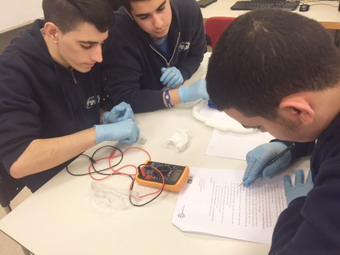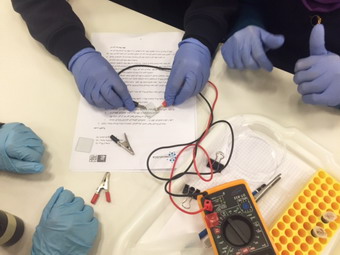How can a STEM (Science, Technology, Engineering, and Mathematics) curriculum development project insure that the learning module it develops is adapted to minority groups in its country, especially those that speak different languages than the majority culture?
In Israel, our Irresistible CoL (Community of Learners) team addressed this challenge with respect to the Arab sector, which represents about 20% of the Israeli population. First, from the very beginning, we incorporated two Arab chemistry teachers into our CoL, and they helped develop the module from start to finish.
Second, we understood that Arab students would find the module easier to understand if it they could use an Arabic version. In fact, most school texts in the Israel educational system are developed in Arabic as well as in Hebrew. The Irresistible Project did not provide funds for translating the module into Arabic, so we applied for a grant from the The Materials Research Society Foundation (MRS Foundation) to do so. The grant was approved, which allowed us to produce an Arabic-language version of the module. This translation included translating into Arabic not only the text materials (including a laboratory experiment on solar cells) but also "special news broadcast" videos used in the module.
Third, we took steps to adapt the module to Arab students by incorporating an Arab scientist in the "special news broadcasts" that introduced the module, and by training Arab-speaking guides to the Weizmann Institute's outdoor science park, the Garden of Science, so they could work with the Arab students. Finally, based on the educational research literature which shows that Arab science students in Israel do not tend to ask many questions, we provided special instruction to encourage Arab students to ask questions during their visit to the Weizmann Institute.
The uniqueness of the Irresistible Project is the integration of contemporary scientific research and technological development with RRI. This integration engages the students to engage in unsolved questions regarding the "science of tomorrow". By including Arab chemistry teachers in the CoL that produced the module, by translating the module into Arabic, and by adapting the module to the Arab school culture, we aim to raise the awareness of Israeli Arab students to the interactions between science and society, and to encourage them to choose studies in STEM, leading to future careers in science and technology.










